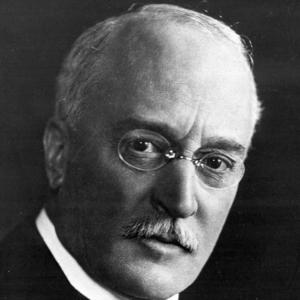Nat'l Biodiesel Day celebrates America's advanced biofuel growth

March 18, 2014
BY The National Biodiesel Board
You wouldn’t be reading this if it weren’t for diesel power. Diesel engines are responsible for moving the majority of goods, including electronics, from manufacturer to consumer. And more than ever before, cleaner burning, renewable biodiesel is playing a role.
“Nearly every product that ends up on a store shelf is dependent on diesel fuel to get it there,” said Joe Jobe, National Biodiesel Board CEO. “That heavy reliance on one fuel means our economy is directly linked to petroleum price swings. It’s in everyone’s best interest to have a choice in transportation fuel, and that’s where biodiesel—America’s first advanced biofuel—comes in. National Biodiesel Day is a reminder that diversity in fuel supply means more stable prices and less dependence on a global oil cartel. That benefits the economy, the environment and leaves more opportunities for our future.”
National Biodiesel Day is celebrated on March 18—the anniversary of Rudolf Diesel's birthday. When he first introduced the diesel engine, it ran not on petroleum but rather on peanut oil.
With plants in almost every state, biodiesel production neared 1.8 billion gallons in 2013 and supported more than 62,000 jobs. While a step in the right direction, inconsistent federal policy threatens this progress. Right now two issues challenge the industry. A modest tax incentive designed to help the growing biodiesel industry break into the petroleum monopoly stands expired. The industry also is fighting a weak renewable fuel standard (RFS) proposal from the U.S. EPA. Last year, the EPA proposed scaling back the RFS, which requires minimum volumes of renewable fuels to be blended into the fuel system. Specifically for biodiesel, the EPA proposed setting the volume requirement at 1.28 billion gallons—a sharp reduction from 2013’s record production in the biomass-based diesel category of 1.8 billion gallons. The biodiesel industry is asking the administration to revise the biodiesel proposal so that it is at least consistent with last year’s production.
To learn more about biodiesel and how you can support more access to renewable energy choices, join the Biodiesel Alliance & Backers. The Alliance & Backers program is open to all friends of biodiesel, ranging from farmers to fleet managers, to organizations, agencies and businesses.
Biodiesel is an advanced biofuel made from sustainable resources such as soybean oil, recycled grease and other fats and oils. It is the first and only EPA-designated advanced biofuel being produced on a commercial scale across the country.
Advertisement
Advertisement
Advertisement
Advertisement
Related Stories
Broco Energy on July 17 announced a new partnership with the Massachusetts Port Authority (Massport) to deliver and transition Massport's fuel tanks to renewable diesel across its various facilities.
Shell Aviation, Accenture, and Amex GBT on July 10 announced Avelia is in the process of evolving to an industry solution with independent data hosting and a multi-supplier model helping users access the GHG benefits of SAF.
The U.S EPA on July 17 released data showing more than 1.9 billion RINs were generated under the RFS during June, down 11% when compared to the same month of last year. Total RIN generation for the first half of 2025 reached 11.17 billion.
The U.S. EPA on July 17 published updated small refinery exemption (SRE) data, reporting that six new SRE petitions have been filed under the RFS during the past month. A total of 195 SRE petitions are now pending.
Avia Solutions Group, the world's largest ACMI (aircraft, crew, maintenance, and insurance) provider, has partnered with DHL Express to reduce greenhouse gas emissions from its international shipments using SAF.
Upcoming Events










